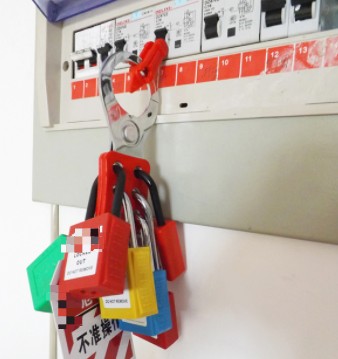LOTO Compliance
If employees service or maintain machines where the unexpected startup, energization, or the release of stored energy could cause injury, the OSHA standard applies, unless an equivalent level of protection can be proven. Equivalent level of protection may be achieved in some cases through standard operating procedures (SOP) and custom machine guarding solutions that are combined to establish machine control to protect the worker for specific tasks.[citation needed] The standard applies to all sources of energy, including, but not limited to: mechanical, electrical, hydraulic, pneumatic, chemical, and thermal energy.
The standard does not cover electrical hazards from work on, near, or with conductors or equipment in electric utilization (premise wiring) installations, which are outlined by 29 CFR Part 1910 Subpart S.[6] The specific lockout and tagout provisions for electrical shock and burn hazards can be found in 29 CFR Part 1910.333. Controlling hazardous energy in installations for the exclusive purpose of power generation, transmission, and distribution, including related equipment for communication or metering, is covered by 29 CFR 1910.269.
The standard also does not cover the agriculture, construction, and maritime industries or oil and gas well drilling and servicing. Other standards concerning the control of hazardous energy, however, apply in many of these industries and situations.
Exceptions
The standard does not apply to general industry service and maintenance activities in the following situations, when:
Exposure to hazardous energy is controlled completely by unplugging the equipment from an electric outlet and where the employee doing the service or maintenance has exclusive control of the plug. This applies only if electricity is the only form of hazardous energy to which employees may be exposed. This exception encompasses many portable hand tools and some cord and plug connected machinery and equipment.
An employee performs hot-tap operations on pressurized pipelines that distribute gas, steam, water, or petroleum products, for which the employer shows the following:
Continuity of service is essential;
Shutdown of the system is impractical;
The employee follows documented procedures and uses special equipment that provides proven, effective employee protection.
The employee is performing minor tool changes or other minor servicing activities that are routine, repetitive, and integral to production, and that occur during normal production operations. In these cases, employees must have effective, alternative protection.

Post time: Jul-06-2022

